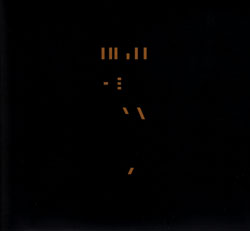
It is impossible to put Volker Heyn's music in a box, especially if this disc is a representative sample. If a sweeping generalization is to be made, one whose ultimate meaninglessness might initially be outweighed by truth, it is that Heyn favors frequent return in the service of radically fluid formal structures. That, at least, seems a constant in these stunningly diverse pieces, whose dates range from 1981-2005.
A comparison of the two pieces for string quartet, performed admirably by the Pellegrini Quartet, illustrates the myriad shapes and moods at Heyn's command, but his unity of vision can also be heard. The title composition (1983) begins in post-Ligetian mode, centering around a single pitch but appearing as if a micropolyphonic web will form. This does not happen, and though the initial pitch does return throughout, especially toward the end of the composition, it is a work of fragmented and rhythmically complex beauty, starkly wending its way down a path of unexpected registral and timbral twists and turns. The much longer "Les Visages des Enfents" (2002-2004) discards any single-pitch allegiance, pursuing a much more circuitous route of pauses, sudden dynamic shifts, slides, wild scrapes and snaps at top volume, as if a late 1960s Penderecke piece was torn apart after being elongated and then reconstructed by Webern, if such a thing were chronologically possible. Yet, this is no exercise in jump-cut surrealism; passages of breathtaking unison, slightly inflected by microtonal shifts, abound throughout, bringing a kind of unity to what might otherwise have seemed chaotic.
It is not simply that Heyn ignores tradition; it is everywhere in his music, lurking in the shadows. It is as if he beats it back with a hammer, a metaphor seemingly apt for the percussion-heavy "K'Ten" (2005), whose mechanical rhythms pit strings and piano against the sounds of construction in metal in a fury far beyond anything Cage ever attempted. A step closer to reality is taken with the darkly industrial "Preludes Zu Ferro Canto," fragmentary tape pieces placed strategically throughout the disc. Even the quasi-spectral "Blues in B-Flat," for solo cello, hammers its point home with staggering import, overtones blazing amidst long near-silences.
Heyn is a force with which to reckon. His music is not for the faint of heart or weak of stomach, but for those in search of deep sonic adventure, there's nothing quite like it!
Comments and Feedback:
|



